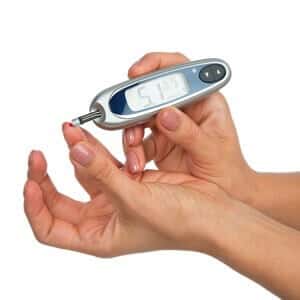
Sitagliptin (Januvia) is a type 2 diabetes drug that has been on the market for more than a decade. It belongs in a class of drugs called gliptins or DPP-4 inhibitors. These meds enable the body to make more insulin. More insulin equals lower blood glucose levels. This should help people better control their type 2 diabetes. Doctors have been enthusiastic about prescribing gliptins because they have been perceived as very safe drugs. But this reader of our syndicated newspaper column has reported Januvia joint pain. There is even an FDA warning about just such a side effect.
Januvia Joint Pain Can Be Devastating:
Q. I have type 2 diabetes and took Januvia for six weeks. I had severe muscle and joint pain and terrible nausea. I couldn’t get out of bed in the morning because this medicine made me feel like I was dying. I stopped taking it and wonder how else I can control my blood sugar.
Warning About Januvia Joint Pain:
A. Many years after gliptins were introduced the Food and Drug Administration discovered an unexpected complication. In 2015 the FDA warned about severe and disabling joint pain associated with alogliptin (Nesina, Vipidia) sitagliptin (Januvia), saxagliptin (Onglyza) and linagliptin (Tradjenta). The agency describes its discovery this way.
“…we identified cases of severe joint pain associated with the use of DPP-4 inhibitors. Patients started having symptoms from 1 day to years after they started taking a DPP-4 inhibitor. After the patients discontinued the DPP-4 inhibitor medicine, their symptoms were relieved, usually in less than a month. Some patients developed severe joint pain again when they restarted the same medicine or another DPP-4 inhibitor.”
FDAs List of DPP-4 Inhibitors:
- Januvia
- Janumet
- Janumet XR
- Onglyza
- Kombiglyze XR
- Tradjenta
- Jentadueto
- Nesina
- Kazano
- Oseni
Januvia Joint Pain is Not the Only Problem:
Other side effects to be aware of with gliptins include pancreatitis. This is REALLY SERIOUS! Any abdominal pain requires immediate medical attention. Let your doctor know if you experience nausea, vomiting or diarrhea.
Other adverse reactions include flu-like symptoms and skin reactions. Notify your physician if you develop a rash or painful skin. If you develop shortness of breath climbing stairs, ask your doctor to test your for congestive heart failure. Have her monitor kidney and liver function periodically.
Many people tolerate gliptins without experiencing any side effects. That’s good news for them. But if you discover that your joints are working like they used to, please do not assume it is just an age thing. Here is another story from a visitor to this website. You can read more at this link.
Tony in Daly City shared this story:
“Thank God for this site. I am experiencing severe leg and joint pain. I asked my Doctor about Januvia which I take with glipizide. He said it doesn’t cause joint pain. After reading other comments on this website I realized that my medicine might be causing my pain. Hopefully the pain will go away after stopping Januvia. It’s debilitating.
“I’ve only taken Januvia for several months. It did not bother me at first, but now I’m suffering pain and stiffness everyday. It wakes me up at night. Prolonged standing causes it to get worse. I’ve had my knees checked for arthritis. The test was negative. Junuvia is a problem!”
Are There Other Ways to Control Blood Sugar?
There are many other approaches to controlling blood sugar in type 2 diabetes. In our Guide to Managing Diabetes we discuss dietary choices that can be useful as well as herbs and medications to lower blood sugar. It is available at www.PeoplesPharmacy.com.
Herbs that may be helpful include bitter melon, cinnamon, fenugreek and nopal cactus. You may also want to discuss metformin or an old drug like glyburide with your physician.

